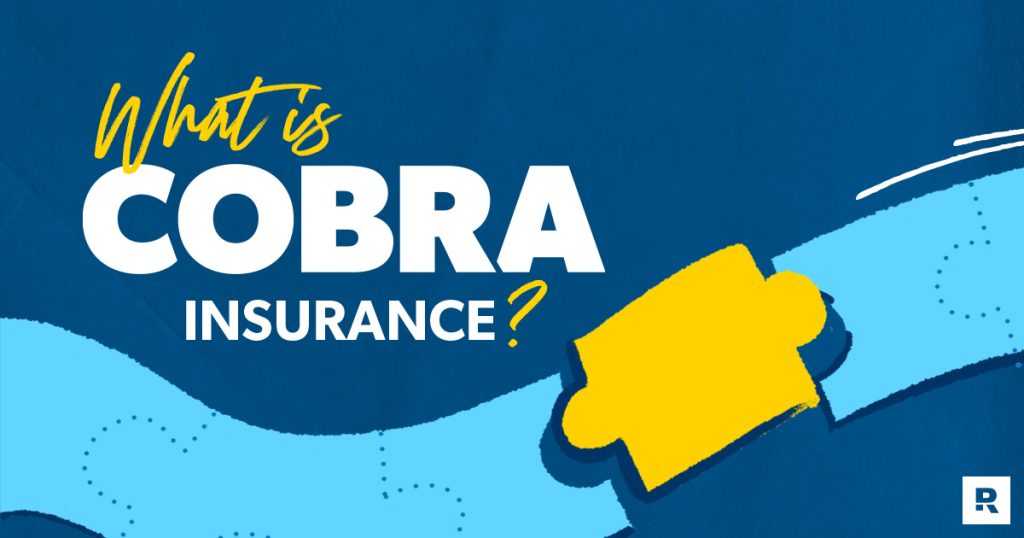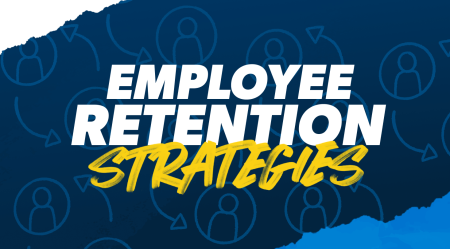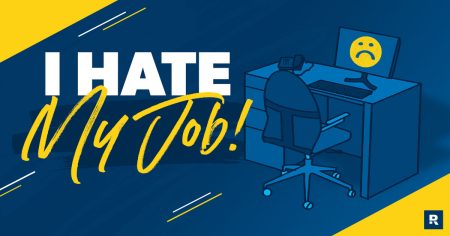Losing your job or getting your hours cut at work can feel like a punch to the gut. Once you’re over the initial shock, you’ve still got to live with the realities of being without a job.
One of those realities is figuring out what you’ll do about health insurance. You probably received a letter from your employer letting you know that you qualify for COBRA insurance. Two questions probably popped into your head as you tried to make sense of it all: What in the world is COBRA insurance? Do I need this?
You’ll face a lot of important questions as you figure out your next steps, but don’t put your health insurance needs on the back burner. A medical emergency can happen at any time, so you have to get this stuff figured out now.
Before you decide if COBRA insurance is right for you and your family, there are some things you need to know.
Do COVID-Related Job Losses Qualify for COBRA Insurance?
First up, let’s address health coverage following job losses related to the 2020 coronavirus pandemic. That’s a tough outcome many are facing. But if it happened to you there’s some encouraging news: In response to money troubles stemming from the pandemic, President Joe Biden in March 2021 signed into law The American Rescue Plan Act (ARPA). It mandates a 100% subsidy of COBRA premiums from April 2021 through Sept. 30, 2021.1 Just be sure to get enrolled if you qualify—and read below about the timeline to opt into COBRA!
Even beyond the window of the ARPA act, you have another health insurance option if you’ve lost employment as a result of pandemic woes. You would also be eligible for a special enrollment period on the federal exchanges.2 You may even find a better price through a federal plan than you would typically see from COBRA coverage.
What Is COBRA Insurance?
If you’ve lost your job-based health insurance, you have two options: Replace it with another plan (either in the marketplace or through a new employer) or sign up for COBRA health insurance. And, no, COBRA insurance has nothing to do with snakes, in case you were wondering.
COBRA health insurance, which came from the Consolidated Omnibus Budget Reconciliation Act, lets you temporarily keep (usually for up to 18 months) the same employer-based health plan you had at your old job. Most employers with group health plans offer this option to employees.
The basic idea behind COBRA is to help you and your family avoid a gap in health coverage. And trust us, you do not want to have a gap in coverage!
Who Qualifies for COBRA Insurance?
There are basically three factors that determine who is eligible for COBRA insurance. If you meet the requirements, you can keep your insurance (assuming you want to stick with the same health plan and benefits you received at your old job).
1. You lost your job-based group health plan.
If you decided to leave your job, had your hours reduced, or got fired and lost health coverage, you qualify for COBRA continuation coverage. (That rules out the possibility of enrolling if you had previously opted out of employer-based coverage.) The only exception is if you were fired for committing a crime (and health insurance is the least of your problems if that’s the case).
2. You’re covered under a group health plan.
If you, your spouse and your children are covered under your workplace health plan, your whole family can get in on the COBRA action. But if you were the only person covered, then no one else in your family would qualify for COBRA—just you.
Your spouse or children covered under your old job’s plan will also be eligible for COBRA if:
- You pass away. Even though you obviously won’t need health insurance anymore, your family can still stay covered under COBRA.
- You get divorced. If you and your spouse split up and they’re on your health plan, they can keep that same coverage with COBRA. The same thing applies if you’re on their health plan.
- You move to Medicare. When you make the switch to Medicare, your family can extend their coverage under COBRA.
- Your kid grows up. Once your kid turns 26, they’re on their own—at least when it comes to health insurance! But while they hunt for their own insurance plan, COBRA can prevent a gap in coverage, if it comes to that.
3. Your group health plan qualifies under COBRA.
Whether you work for a big law firm in New York or a small public school in Nebraska, most employers who offer health care benefits are required to offer COBRA insurance to employees after they leave.
There are some exceptions, though. Employers with less than 20 employees don’t necessarily have to offer COBRA—the rule for small firms varies by state through what are known as mini-COBRA plans.3 And if your employer is going out of business or ends its health insurance for everyone in the company, then continuation coverage can’t be offered.
How Much Does COBRA Health Insurance Cost?
It’s easy to forget how much your job-based health insurance really costs, especially since your employer helped foot some of the bill. All of that changes when you leave, go part-time, or get the boot. And if there’s one place you feel COBRA’s bite, it’s in your wallet!
Your monthly COBRA premiums (or payments) will equal the total cost of the premium under your employer-sponsored health insurance, plus a 2% administration charge. If you’ve had insurance through your employer for a while, the price to continue that coverage on your own is going to sting.
In 2020, the average annual premium cost for employer-sponsored health insurance was $7,470 for individual coverage and $21,342 for family coverage.4 But employers covered 83% of the costs for individuals and 74% for families on average.5
With COBRA insurance, you’re on the hook for the whole thing. That means you could be paying average monthly premiums of $623 to continue your individual coverage or $1,778 for family coverage—maybe more!
We know those numbers sound steep (and they are). But there’s something else even more expensive: having to foot the bill for a medical event without any kind of insurance. Trust us, taking the temporary hit from COBRA premiums is way better than facing potential medical bankruptcy. It’s by far the lesser of two evils.
What’s My Timeline to Choose Whether to Sign Up for COBRA Insurance?
You have some time to think about opting into COBRA, but not much.
The clock starts ticking when you lose coverage or hear from your employer. When that happens, you qualify for a special enrollment period and have 60 days to choose COBRA continuation coverage or a marketplace plan. If you say “No thanks!” to COBRA, you’ll have to choose a marketplace plan.6 (By the way, if you do waive COBRA coverage, but have a change of heart, you can still go back and elect coverage so long as it’s within the original 60-day window.)
If you miss that window and don’t sign up for COBRA or a marketplace health plan, you’re putting yourself in a dangerous position.
First, once the initial 60 days are up, you won’t be able to sign up for COBRA at all. And second, if you didn’t sign up for any health insurance plan during that time, you might have to go uninsured until the next open enrollment period. That’s a big risk to take. What if you or someone in your family has a medical emergency and you don’t have insurance?
It doesn’t matter how young, healthy or wealthy you are. If you’re alive and breathing (and since you’re reading this, that means you), then you need health insurance. No exceptions! Medical bills are the number one cause of bankruptcies in the U.S.7 Don’t roll the dice on your health or your finances. It’s just not worth it.
How Long Does COBRA Continuation Coverage Last?
If you like your job-based health plan, you can keep it—well, for a little while at least.
Again, continuation coverage under COBRA is designed to be a temporary extension of the health insurance you had at your old job—the key word here is temporary. In most cases, COBRA coverage lasts 18 months from the time you choose to sign up for it.
Under special circumstances, you might be able to extend COBRA coverage to 29 or 36 months for you and your dependents.
But beware: If you’re late on that first payment, you’ll lose your right to COBRA coverage, and you won’t be able to get it back. The due date for your first payment is defined as 45 days after you elect coverage. If you’re late on a monthly payment after that, your coverage will be canceled that day. However, if you make your payment within the 30-day grace period, your COBRA coverage can be reinstated.
How Do I Decide Between COBRA and Other Health Insurance Options?
Whether you’re trying to choose between health insurance plans or what to eat for dinner tonight, it’s always good to have plenty of options. And like we said earlier, you do have other options besides COBRA.
If you’re still on the hunt for a new job, decide to go into business for yourself, or need insurance to bridge the gap until your health care benefits at your new job kick in, you’ll probably discover that buying health insurance from the marketplace is less expensive than COBRA.
So how do you decide which health plan is best for you? Here are some things to think about:
1. Know your medical needs.
Everyone is different. You and your family’s medical needs probably won’t be the same as the Joneses next door, so it’s important to know what you want and find a health insurance plan that makes sense for you.
For example, if you have any prescriptions, you should check whether or not they will be covered under COBRA or a marketplace insurance plan. Take a look at the overall coverage and provider network as well.
2. Understand the differences between plans.
Things can get confusing really quickly while you try to figure out all the health insurance plans out there. You need to understand what you’re getting and the differences as you look at each option.
For example, your doctor might have been in network through the preferred provider organization (PPO) plan you had at work, but they might not be in the health maintenance organization (HMO) plan network you’re looking at from the marketplace. That means it’s going to cost you more to see your doctor if you go with the HMO. In that case, you need to do some soul-searching and ask yourself how much you really like your doctor!
These are the kind of details you should think about as you decide whether or not to choose COBRA. Different plans have different coverage options, so make sure you know what you’re signing up for!
3. Weigh the costs.
COBRA insurance is often more expensive than marketplace insurance, partly because there isn’t any financial assistance from the government available to help you pay those COBRA premiums.
If you choose a plan from the marketplace, you can check with an independent agent who can help you shop around for different health plans to see if you qualify for a premium tax credit. If you qualify for the tax credit, it can help lower your monthly payments.8 And who doesn’t want lower payments?
More and more Americans are also turning to health savings accounts (HSAs) and high-deductible health plans (HDHPs), which have lower average premiums than other types of health plans.9 Using an HSA can be a great way to save money on health insurance costs, if it’s available to you. And if you already have an HSA when you lose your job? Be aware that the money in an HSA is eligible for covering COBRA premiums.10 Make sure you look at all the options open for your situation.
Work With an Independent Agent
When it comes to picking the right insurance coverage for you and your family, it helps to have plenty of options to choose from. Partnering with an independent insurance agent can give you more choices to consider. You can also get help reviewing and comparing all your options, including COBRA, so you can make a confident decision about your health insurance.
Our friends at Health Trust Financial make it simple and easy to find quality insurance professionals who serve your area. If you’re leaving an employer and your insurance needs are changing, we recommend connecting with them so one of their independent agents can evaluate all your insurances and make sure you’re covered for the next chapter of life.
Read the full article here












